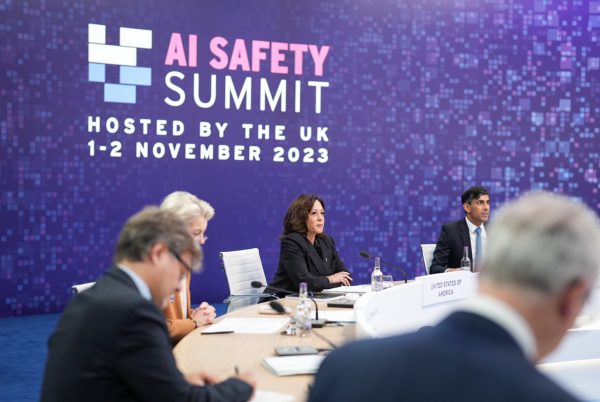From UPSC perspective, the following things are important :
Prelims level: algorithmic auditing
Mains level: challenge of developing capabilities for AI regulation

Central idea
The central idea revolves around the global momentum for AI regulation, acknowledging its transformative impact on sectors. It emphasizes the urgent need for regulatory skill-building to match the evolving risks of AI, especially for regulatory agencies, while highlighting the potential widespread adoption and diverse applications of generative AI across the economy.
Key Highlights:
- Recent Global Efforts: Global initiatives, including executive orders, legislations, and declarations, underscore the importance of regulatory skill-building in the digital age.
- Transformative Impact: The urgency to rethink regulatory capabilities arises from AI’s transformative impact on sectors like banking, telecommunications, and insurance.
- Generative AI Products: Products showcase vast scope and rapid improvement, indicating potential widespread adoption across the economy.
Key Challenges:
- Urgent Skill-Building: The downstream challenge involves urgently building regulatory skills to match the pace of emerging risks from AI technology.
- Regulatory Agencies’ Role: Regulatory agencies, at the forefront, must adapt to AI’s transformative influence in various sectors.
Key Terms and Phrases:
- Generative AI: AI products with the capability to generate content or services, showcasing vast scope and rapid improvement.
- Algorithmic Auditing: Audit of each part of a model’s lifecycle to understand workings and identify potential problematic outcomes.
Key Quotes:
- “AI may alter professional practices and norms, reshaping industries such as bookkeeping, accounting, and law.”
- “Effective regulation can facilitate market acceptance of AI products and services, necessitating a proactive regulatory approach.”
Key Statements:
- Regulatory agencies, like the Reserve Bank of India and the Securities and Exchange Board of India, are developing AI tools for regulatory supervision.
- Building regulatory capabilities in-house is challenging; agencies need to be nimble and proactive to acquire necessary skills and evaluate external inputs.
Key Examples and References:
- Banks and credit card companies are using AI for fraud detection, risk assessment, and digital marketing.
- The Indian insurance industry utilizes AI for risk management, indicating diverse applications of AI in the economy.
Key Facts and Data:
- The Economist Intelligence Unit reports AI usage in banks, credit card companies, and e-commerce for various purposes, highlighting the technology’s growing influence.
Critical Analysis:
- The transformative potential of AI in various sectors necessitates a reevaluation of regulatory capabilities, including algorithmic auditing and understanding disclosure-related requirements.
- While private sector incentives may mitigate rapid AI adoption, effective regulation remains crucial for market acceptance and avoiding inadequate reliance on external expertise.
Way Forward:
- Regulators must proactively build capabilities to understand and implement AI regulations, emphasizing the need for systemic development at the scale of the Indian state.
- The central government should take the lead in understanding and replicating the transition from an analog to a digital state, addressing the challenge of developing capabilities for AI regulation.
Get an IAS/IPS ranker as your 1: 1 personal mentor for UPSC 2024

 UPSC 2026, 2027 UAP Mentorship - May Batch Starts
UPSC 2026, 2027 UAP Mentorship - May Batch Starts